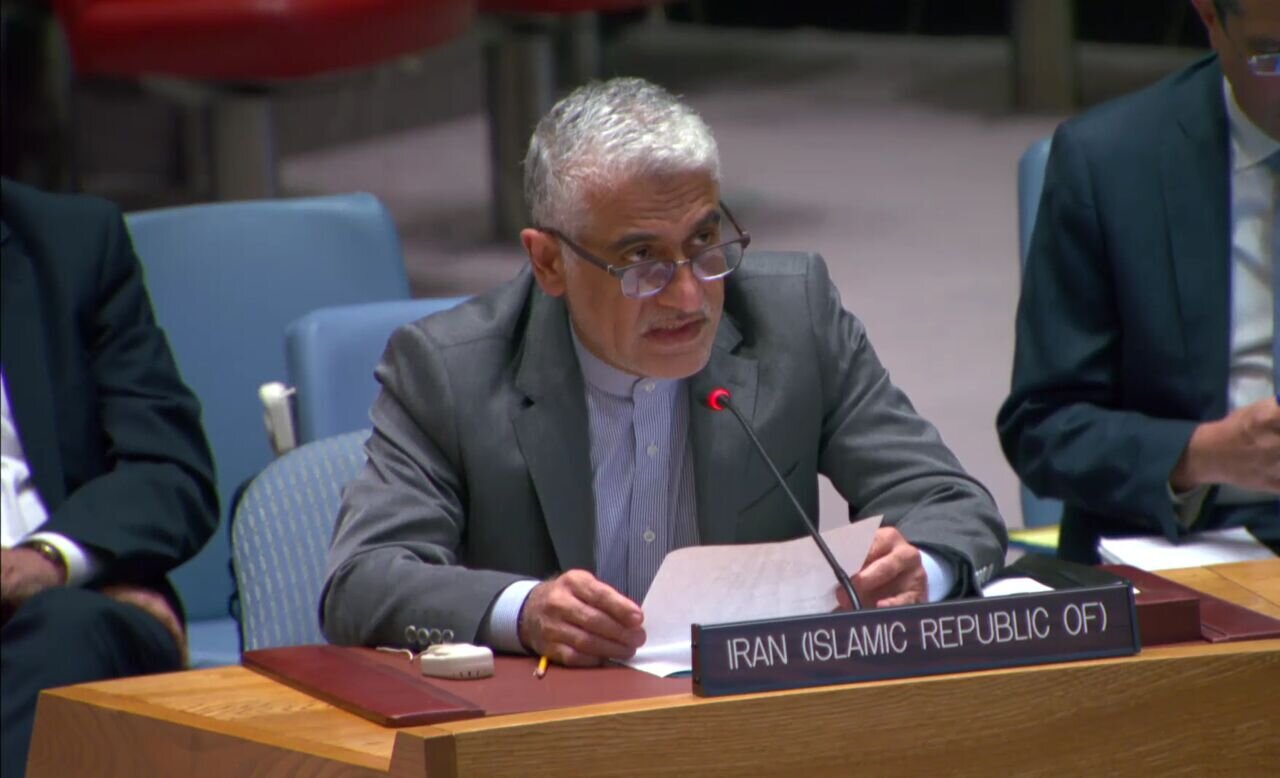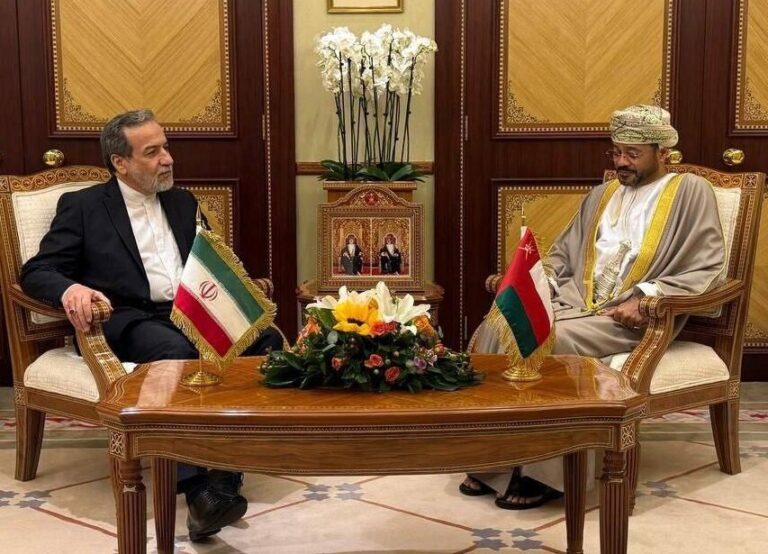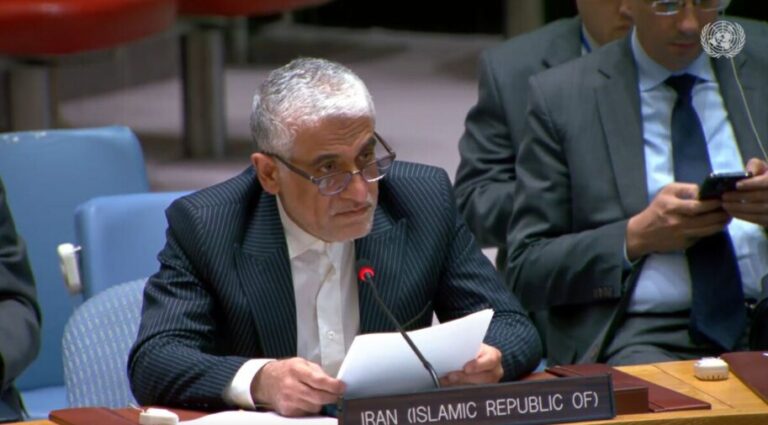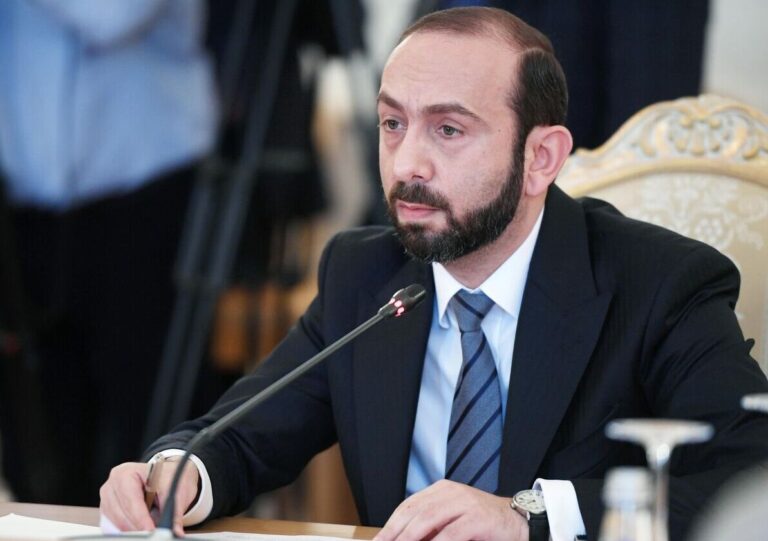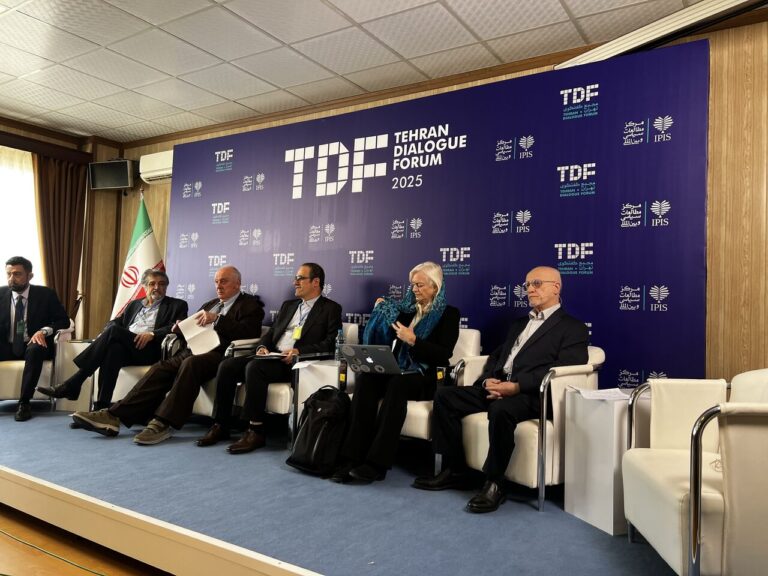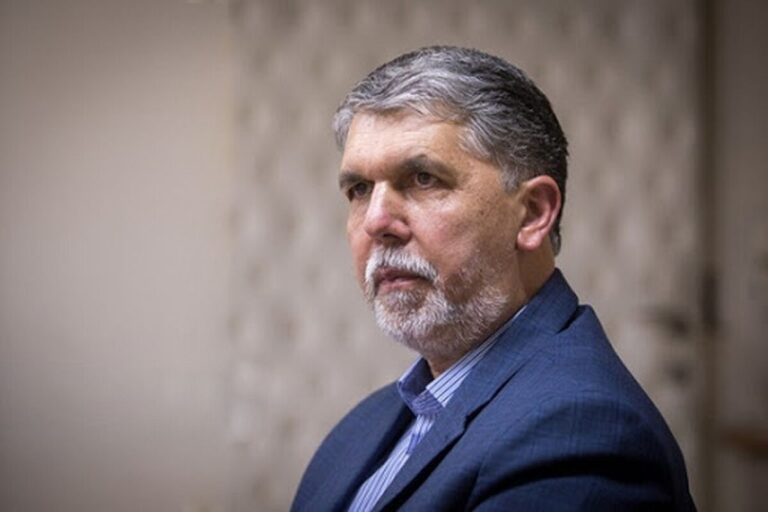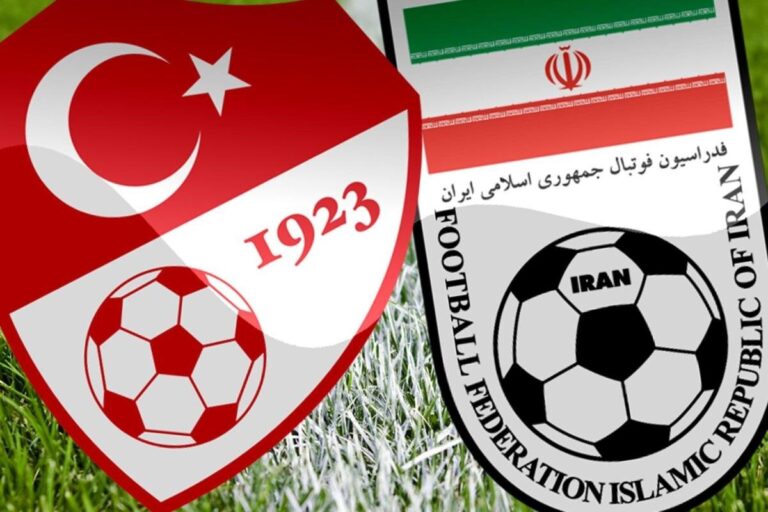Iran’s UN Envoy Urges for an Inclusive Government in Syria: A Path to Stability
In a recent statement regarding the ongoing humanitarian crisis in Syria, Iran’s Ambassador to the United Nations, Saeid Iravani, highlighted the significant challenges the nation faces. The situation necessitates urgent attention from the international community, particularly concerning humanitarian and economic issues. This article provides a comprehensive overview of the key points raised by Ambassador Iravani during the Security Council meeting.
On January 16, 2024, during a meeting of the Security Council titled “On the Situation in the Middle East: (Syria),” Ambassador Iravani expressed his concerns and outlined critical issues affecting Syria. Below is the full transcript of his remarks:
In the Name of God, the Most Compassionate, the Most Merciful
Mr. President,
I would like to extend my heartfelt congratulations to China for taking on the presidency of the Security Council this month. I also commend Algeria for its successful leadership and conclusion of the presidency in January.
We appreciate the efforts made by Mr. Pedersen, the Special Envoy, and Ms. Joyce Msuya, the Assistant Secretary-General, for their briefings and support aimed at fostering constructive engagement between the UN and the Syrian caretaker authorities.
Key Points from Ambassador Iravani’s Statement:
- Humanitarian and Economic Challenges: Syria continues to grapple with significant humanitarian and economic challenges. To address these issues, there is an urgent need to focus on:
- Reconstruction of critical infrastructure.
- Restoration of essential services, particularly for early recovery projects.
- Resurgence of Terrorism: The rise of terrorism in Syria presents an escalating threat. The presence of foreign terrorist fighters (FTFs) with conflicting agendas has increased instability. The risk of advanced weapons falling into the hands of terrorists remains a serious concern, as highlighted by the Under-Secretary-General of the UN Office of Counter-Terrorism. An estimated 42,500 individuals, some linked to Da’esh, remain in detention camps in northeastern Syria. A structured, accountable repatriation process is essential for stability in Syria and the region.
- Respect for Community Rights: It is vital that the rights of all communities in Syria are respected in accordance with international law. Political pressure and harassment aimed at displacing minorities, particularly Alawites and Shiites, must cease immediately. The safeguarding of Syria’s religious sites is also crucial for preserving the nation’s identity and unity, allowing unrestricted access for all communities to practice their rituals freely.
- Israeli Violations: Israel poses a significant threat to Syria, repeatedly violating its sovereignty and territorial integrity. This regime continues to refuse withdrawal from the occupied Golan Heights, supported by the U.S. Israel’s actions undermine Syria’s military and research infrastructure. The Security Council must take decisive action to halt these violations and compel Israel to withdraw from all occupied territories.
- Commitment to Syria’s Sovereignty: Iran reaffirms its unwavering support for Syria’s sovereignty, independence, unity, and territorial integrity. The future of Syria must be determined solely by its people, free from external interference. Iran advocates for the formation of an inclusive government through free elections and national dialogue, ensuring fair representation for all Syrians. Resolution 2254 (2015) provides a clear framework, emphasizing constitutional reform as a priority.
- Rejection of U.S. Allegations: Iran categorically rejects the baseless allegations made by the U.S. representative. These unfounded claims are crafted to distort the truth and mislead the international community. Over the years, the U.S. has violated Syria’s sovereignty under the pretext of counterterrorism, providing safe havens for terrorist groups and promoting its geopolitical ambitions.
- Conclusion: In conclusion, Iran remains committed to playing a constructive role in collaboration with the UN, regional partners, and the Syrian government, which accurately represents the will of the Syrian people. We fully support the efforts of UN Special Envoy Geir Pedersen and emphasize the central role of the United Nations in achieving lasting peace and stability in Syria and the broader region.
However, these efforts face severe obstacles due to unjust and unlawful extraterritorial sanctions imposed by the U.S. and the EU. Temporary relief or limited humanitarian exemptions are not sustainable solutions. These sanctions must be fully lifted, as they disproportionately harm vulnerable populations, violate fundamental rights, and obstruct the recovery process. Furthermore, lifting these sanctions is crucial for ensuring the safe, dignified, and voluntary return of all Syrian refugees and displaced persons.
Thank you.
